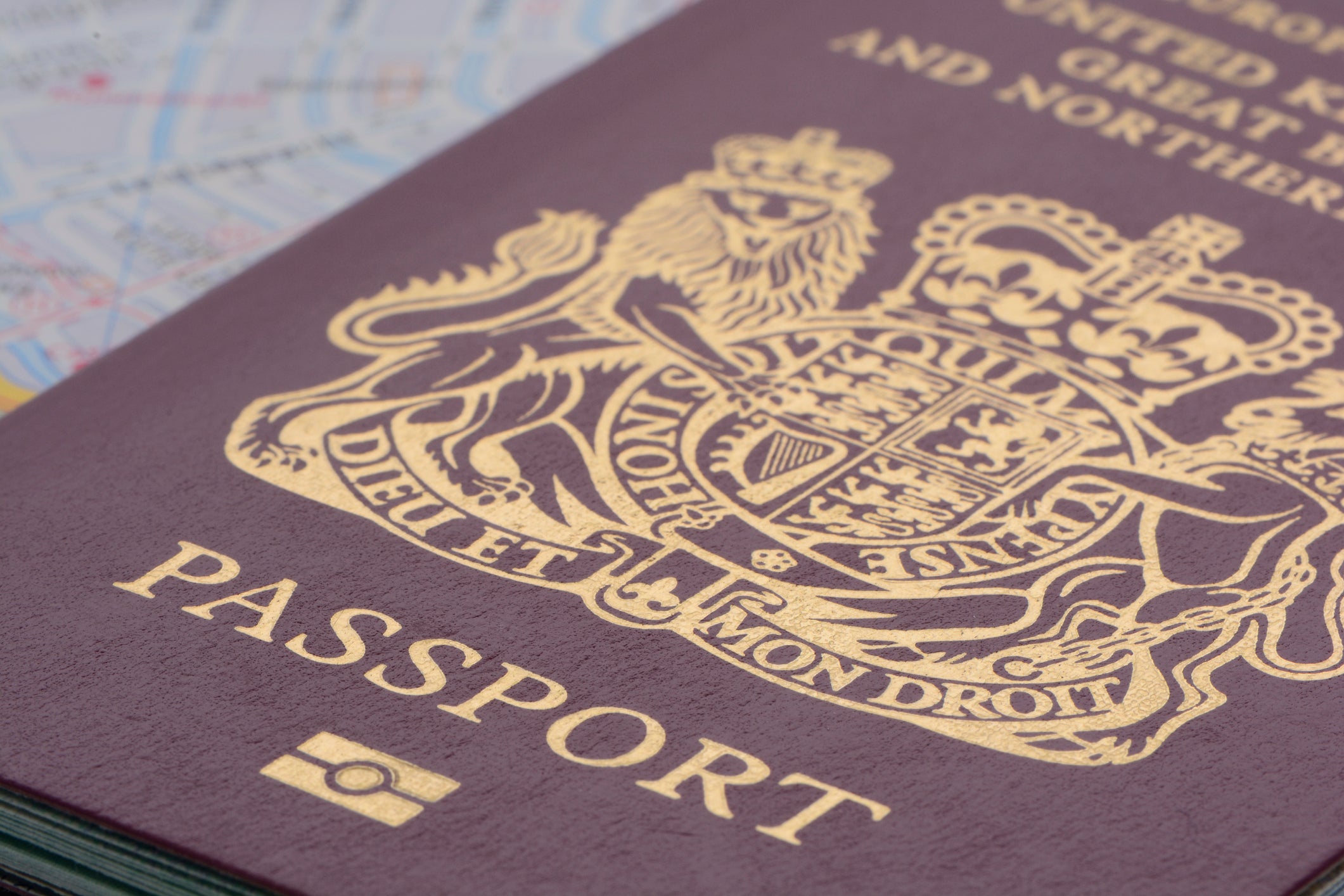How has Brexit changed passport expiry rules for UK tourists visiting the EU?
Simon Calder answers your questions on renewing passports post-Brexit, travelling to the USA, and PCR tests in green list countries


Q Please help, Simon. I have a friend in tears. She is due to fly to Portugal on Friday 10 September. Her passport was issued on 16 December 2011 and expires on 16 July 2022. I’ve read your article which says the EU will consider her expiry to be 16 December 2021. She’s due to fly home on 17 September. If she needs three months she will be out by a day. Can you help if this is correct or if we’ve completely misunderstood?
Tracey G
A I am sorry to hear about the upset that the UK’s decision to leave the European Union is causing, but fortunately I can offer a solution.
First, to explain the problem: prior to Brexit all British passports were valid anywhere in the EU, up to and including the date of expiry. From 2021, the rule is that the passport must be valid for three months beyond the intended date of return, and that it must not have been issued more than 10 years ago. Your friend’s passport meets both those conditions. But some travel firms are combining these two rules, even though I have seen no conclusive evidence that should be treated are interdependent. They claim that passports must not have been issued more than nine years and nine months before the intended date of return.
I am waiting for a test case to be heard on this point, but until that happens it is wise to meet the “worst-case” scenario. Happily there is a simple and inexpensive form of insurance that your friend can deploy: booking a flight from Portugal to the UK for 15 September. (I recommend that date rather than 16 September to avoid any possible grey area that could impede her progress.) The cheapest flights on that day are both on Ryanair to London Stansted: from Porto for £11 or from Faro for £13. (Spend not a penny more on seat selection, baggage, etc.)
If challenged on the outbound journey, your friend can simply point to her booking and say that is her intended day of return.
Now, in her position, I might well have a change of mind once I arrive in the sunny, friendly and delicious nation of Portugal, and not actually travel on the chosen flight, instead returning on the original 17 September booking.
I envisage no circumstances in which this would present a problem for Portuguese passport control. And, on arrival back in the UK, I would apply immediately for a replacement passport. Which will be blue, as promised by Brexit.

Q I really want to take my daughter to the States next February for her 18th birthday. Do you think the US will relent on Brits entering any time soon? Am I silly to book flights now as they’re reasonably priced?
Tarah B
A In a week it will have been 18 months since then-president Donald Trump imposed a ban on non-American arrivals to the US from the Schengen Area (most of the European Union), followed a couple of days later by those from the UK and Ireland. The trigger was clear: coronavirus infection rates in Europe were relatively high while those in the US were relatively low.
Today, Mr Trump’s presidential proclamation has been continued by the current US president Joe Biden – even though the original justification has long since vanished. While the US is vying with the UK for large numbers of new Covid cases, most of Europe is looking far healthier.
So when might the changed situation be recognised with some action to open up? Well, the “transatlantic travel taskforce” set up with great enthusiasm three months ago by the UK and US has yet to deliver anything: the “special relationship” carries little weight, and I see no possibility that the refusal of arrivals from the UK will be lifted before the ban on travellers from the EU. And that does not look a top priority.
There is little political cost to Biden at present. With Covid raging in some parts of the US I detect no haste in the White House to open up, despite the economic and emotional damage the ban is causing – as well as preventing you from being able to promise your daughter an American birthday treat.
While I would be surprised to see the ban extending into 2022, I urge caution in booking. Given the many uncertainties of the Covid era, there could be developments that give you cause to regret committing so far ahead. If transatlantic travel does open up, I am confident good-value tickets will be abundant in February even if you book very late.

Q Do you think the day-two test for green list countries will still be in play over the next few months? I am waiting to book my test until the last minute when we go in October in case it is not needed and it would have been wasted money.
“Yyhsas”
A Thank you for giving me the opportunity to warn people not even to think about booking the so-called day two test until the night before departure back to the UK – or even on the day of travel. There is no upside in booking it any earlier, in my opinion.
The testing requirements for the UK are frankly ludicrous for a country with the highest infection rates of any major nation in Europe. I can see some merit in a pre-departure test – so long as it is professionally conducted – but to insist on an expensive and onerous PCR test after arrival in the UK, even for fully vaccinated travellers from low-risk green list countries, is unsustainably bizarre.
The PCR test is misleadingly described as “day two”, but it can be taken on the day you return or one of the two following days. The government provides a list of suppliers, many of which have questionable reputations. For maximum public health benefit and minimum hassle, the obvious choice is a test at the airport on arrival. Expect to pay £60-£70. Whatever you choose, you must pre-book and pre-pay. Armed with the reference number from this transaction you can then complete the fiendish UK passenger locator form.
The expense and complexity – together with the consequent potential for failure – acts as a severe disincentive to overseas travel and inbound tourists and business visitors. Sooner or later, government ministers will notice – perhaps starting with the Treasury wondering where all the tax revenues from the travel industry have gone. At that point the testing regime will be taken down several notches. I do not know when that will be, but I do know that the testing rules cannot get any sillier. So there is always a chance the requirement will be dropped before you are due to travel home.
Question via the latest Ask Me Anything at independent.co.uk/travel
Email your questions to s@hols.tv or tweet @simoncalder






Join our commenting forum
Join thought-provoking conversations, follow other Independent readers and see their replies
Comments